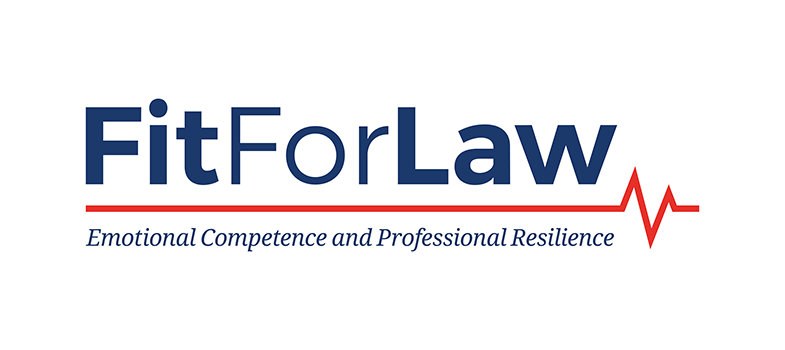1 Introduction
This part of Fit for Law focuses on how you can apply emotional competence and professional resilience to improve your ways of working with others. It gives you the opportunity to think about how you work with clients, including managing expectations, establishing boundaries and dealing, in particular, with difficult or vulnerable clients. It will also encourage you to consider how to work with colleagues and other professionals as effectively and supportively as possible.
The following video demonstrates the importance of working with others.

Transcript: Video 1 The importance of working with others
Whether you are a sole practitioner or work in a multi-national organisation, you will be in contact with others through your work on a daily basis. This may be face-to-face or virtually or a mixture. The Covid-19 global pandemic has led to a growing interest in agile models of working and hybrid working. All of this requires individual legal professionals to continually adapt to new approaches and challenges in working with others. In addition, how you interact with others has a number of significant wider impacts. Here are a number of these. Click on ‘Reveal discussion’ for each one to see more detail.
Impact 1
The quality of your performance at work
Discussion
Working with others can impact on the quality of your performance at work both positively or negatively. For example, if you struggle to communicate effectively with clients, you may struggle with retention of these clients and fail to obtain repeat business. If you find networking difficult, you may find it challenging to attract new clients. Conversely, if you work well with colleagues, you will have a strong support network to draw on for practical and emotional help. If you are able to build rapport with your clients, you are likely to be able to understand their requirements and expectations more easily, and develop a long-term professional relationship.
Impact 2
The quality of others’ performance at work
Discussion
Your approach to your colleagues can impact on their performance at work, both positively or negatively. Negative consequences could involve colleagues feeling demotivated and lacking a sense of commitment to their team or employer. They may also be less productive because they are distracted or upset. Conversely, if you work well with colleagues, you will be able to foster effective teamwork and a positive working environment. In most legal workplaces, colleagues are ultimately team members and the poor performance of others can have wider detrimental economic and reputational impacts, not only on the team but on the whole organisation.
Impact 3
Your wellbeing
Discussion
Our recent research (Jones et al., 2020) highlighted that legal professionals found working with colleagues and others (notably judges) to have a significant impact on their emotional and mental wellbeing. A number of participants gave examples of times when colleagues (and sometimes judges) were unsupportive and/or uncivil and discussed the negative impacts this had on them. Conversely, several participants also spoke about the positive impacts on wellbeing that arose when they felt supported by those around them and had colleagues to discuss challenging issues and debrief with. One participant spoke of the importance of fostering these supportive relationships to navigate personal and legal challenges with others who may face the same difficulties – to let off steam but also gain alternative perspectives or advice. This highlights the benefits of working with others in relation to both your work and your wellbeing.
Impact 4
The wellbeing of others
Discussion
Your approach to your colleagues will have an impact on their emotional and mental wellbeing. At the most extreme, there have been instances where certain types of behaviour become forms of bullying and harassment. A recent global survey by the International Bar Association (IBA) found that 65% of respondents who had been bullied and 37% of respondents who had been sexually harassed had subsequently left or were considering leaving their workplaces (Pender, 2019, p. 9). Less extreme negative consequences can include colleagues feeling unhappy, anxious and isolated.
On the other hand, assisting in fostering a collegiate environment can lead to colleagues feeling a sense of belonging and aid the creation of supportive friendships and networks. Similarly, building rapport with clients can help them to navigate upsetting and potentially traumatic legal issues in a constructive manner.
Continue to 2 Working effectively with clients [Tip: hold Ctrl and click a link to open it in a new tab. (Hide tip)] .
